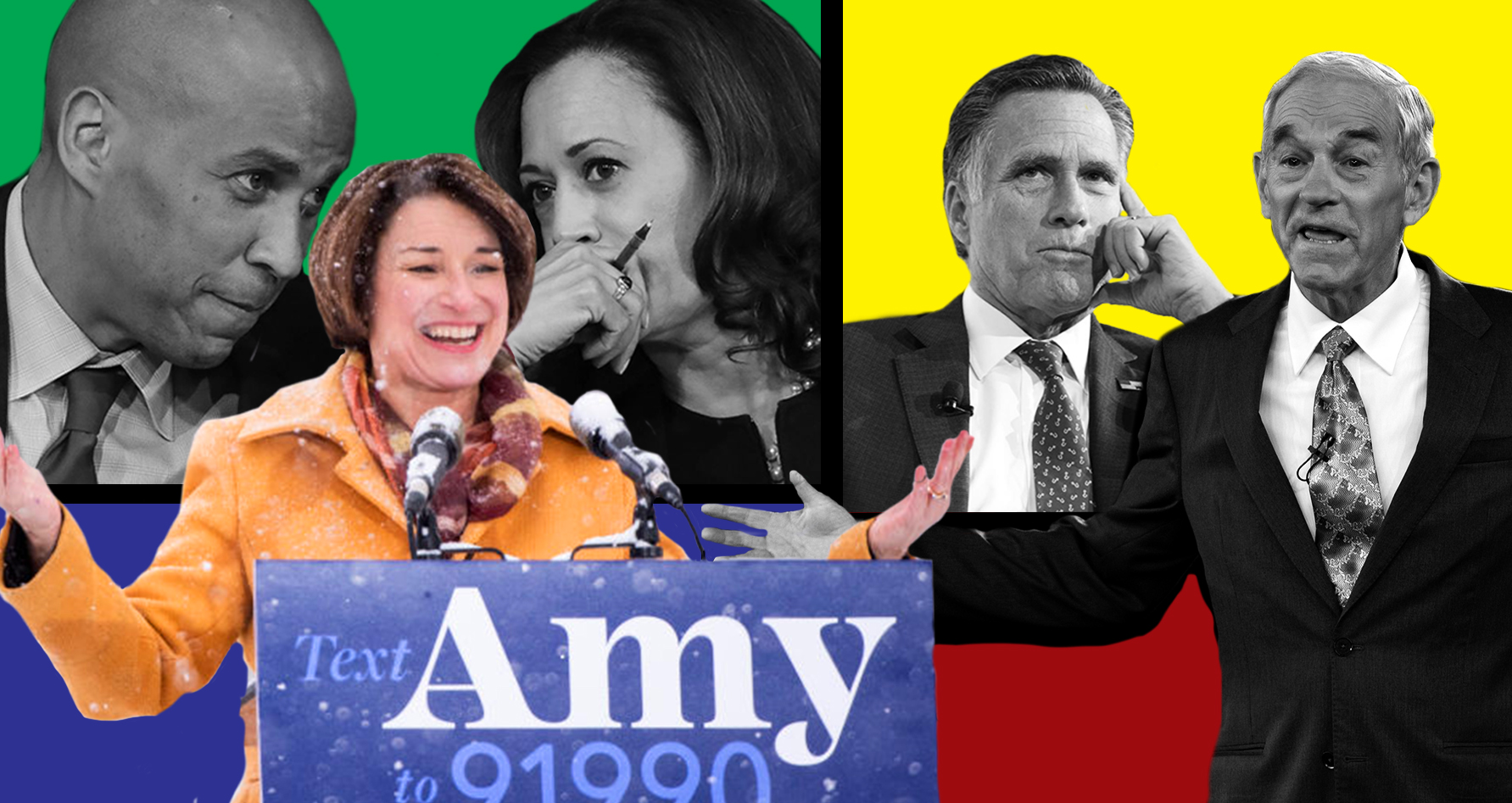The 4 types of presidential candidates
The most common variety among the Democrats in 2020 is the hack who could win the affection of the base while losing a general election in spectacular fashion


A free daily email with the biggest news stories of the day – and the best features from TheWeek.com
You are now subscribed
Your newsletter sign-up was successful
"Bobby who?" This is going to be the fate of most of the Democratic presidential candidates whose names are filling the front pages of newspapers. The opposition party in 2020 is bent on repeating the mistakes of the GOP in 2016, when an overcrowded field doomed many otherwise talented politicians.
In a well-populated primary there are four distinct types of candidates. First there are the guaranteed losers, the loonies and hangers-on and goofballs doing it for kicks or out of boredom like Jim Gilmore. These people have no chance of winning a primary. Attempting to assess their chances during a general election is a kind of category mistake. These are also your Ron Pauls and Dennis Kuciniches, beautiful star-eyed dreamers whose ideological visions of utopia belong properly to a mystical dream kingdom outside the sordid reality of actual politics. Somewhere we are all buying barbecue with gold doubloons via a bitcoin-sourced iPhone app or singing folk songs under the stars at the end of our five-hour work week.
Then there are the hopeless party darlings. If you're a normal socially well-adjusted human being who happened to be a Republican in the lead-up to the 2012 election, you thought that Mitt Romney was a creepy robot programed to hate poor people — and not in a decadent "Let them eat cake" sort of way, but in this bizarre joyless mechanical fashion that made him arguably the least appealing candidate for a major political party in my lifetime. These people always end up okay no matter what because every time they so much as fart a noise not unlike the tedious conventional wisdom that donors crave, they raise another $10 million. Verily I say, they have their reward.
The Week
Escape your echo chamber. Get the facts behind the news, plus analysis from multiple perspectives.

Sign up for The Week's Free Newsletters
From our morning news briefing to a weekly Good News Newsletter, get the best of The Week delivered directly to your inbox.
From our morning news briefing to a weekly Good News Newsletter, get the best of The Week delivered directly to your inbox.
The most unfortunate group are those who have a decent shot at winning a general election but have no chance at winning their party's nomination. John Kasich was the sole Republican who answered to this description in 2016. And Bernie Sanders would have won.
Last of all, you have the winners — people who can carry off a primary and win in November. You probably know the names of people who have done this in recent years.
Where do the 2020 Democratic candidates fit into this schematic? So far among the declared candidates there have not been many of the first sort. Eric Garcetti announced that he is not running, which, if nothing else, means that we will be spared dozens, possibly hundreds, of O.J. Simpson think pieces.
Far and away the most common variety in 2020 is the hack who could win the affection of the base while losing to Trump in spectacular fashion. Beto O'Rourke, Kamala Harris, Corey Booker, even Elizabeth Warren all answer to this description. Meanwhile, Ohio Sen. Sherrod Brown is the best example of a candidate who could win a general election handily even though he will never get anywhere close to the top of the primary. What was true of Bernie in 2016 remains true now, though Brown's home state advantage is the most desirable of any potential candidate's. For very different reasons — i.e., a record of handsiness that will cost him in the #MeToo era — Joe Biden also belongs to this category.
A free daily email with the biggest news stories of the day – and the best features from TheWeek.com
Who could do both, though? My money would be on Sen. Amy Klobuchar of Minnesota. She has the folksy style, the middle-of-the-road record, the necessary identity politics checkmark, and interesting biography. For the women's march crowd she has anti-Kavanaugh bona fides; for the retired union voter in Ohio, she has warm nostalgia about her miner grandfather putting money for his children's college tuition in a coffee can. She is the only candidate who is acceptable both to her party and to the small but all-important number of midwestern Obama voters who went for Trump in 2016 and who will once again decide the presidency next fall.
For my part, I still think 2020 is Trump's to lose. But a Democratic Party that can talk itself out of the guy who is launching his campaign with a beatnik poetry diary at least has a shot.
Matthew Walther is a national correspondent at The Week. His work has also appeared in First Things, The Spectator of London, The Catholic Herald, National Review, and other publications. He is currently writing a biography of the Rev. Montague Summers. He is also a Robert Novak Journalism Fellow.
